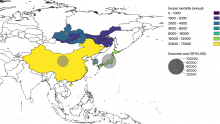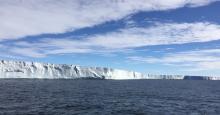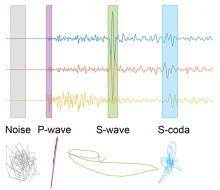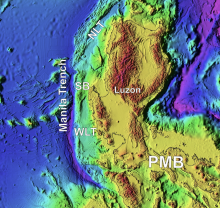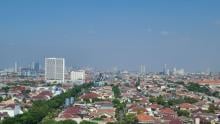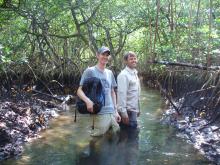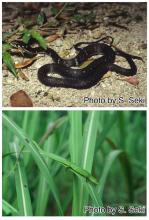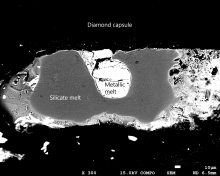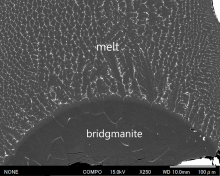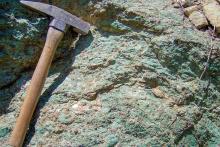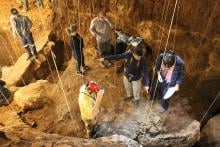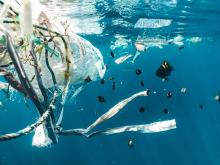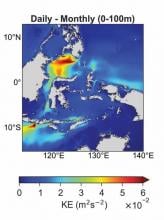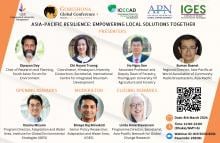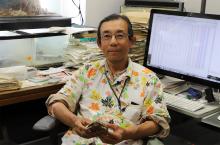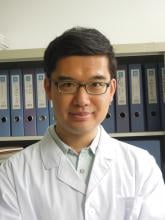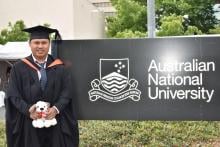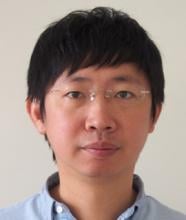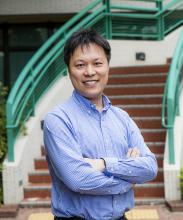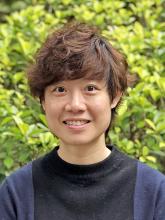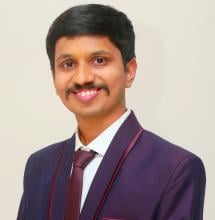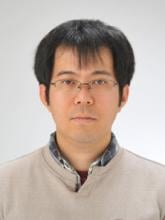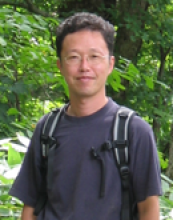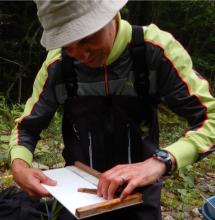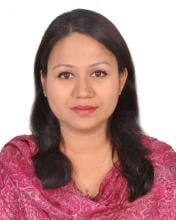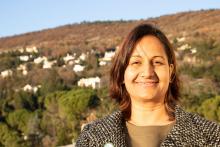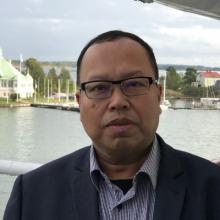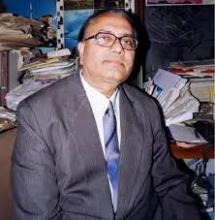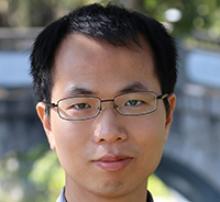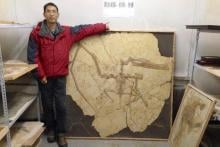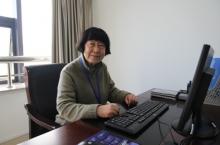Earth Sciences
News
11 Apr 2024
Meandering ocean currents play an important role in the melting of Antarctic ice shelves, threatening a significant rise in sea levels.
28 Mar 2024
A case study on the effects of open waste burning on air quality in Northwestern Greenland calls attention to the importance of no-one-left-behind sustainable air quality monitoring in the Arctic region.
26 Mar 2024
Scientists successfully addressed mathematical challenges in conventional Spectral Matrix analysis, used to analyze three-component seismic signals, by introducing time-delay components. The new technique enables the characterization of various polarized waves and the detection of seismic events that have previously gone unnoticed by conventional methods. These findings pave the way for improving a variety of applications, including earthquake detection.
13 Mar 2024
Gas hydrates are great alternative energy sources but they could also harm us and the environment, note geologists from the University of the Philippines.
24 Feb 2024
- DGIST, HNIBR, and PKNU partner in the Island Wildlife Material Advancement Research Group to create big data on and develop practical resources from natural island wildlife products
07 Feb 2024
Yokohama National University scientists are working towards creating a better tomorrow by addressing diverse challenges, from snow algae and tropical cyclones to AI cyberthreats, and much more.
11 Dec 2023
Asteroids offer valuable windows into the early solar system, given that they are remnants of planetary embryos that failed to form into planets. A recent analysis of samples from Ryugu offered insights into the composition of water- and carbon-rich small bodies in the solar system.
30 Nov 2023
Aids local governments in adapting to the threats of climate change

10 Nov 2023
A significant breakthrough in developing a passive radiative cooling (PRC) material has been announced by researchers at City University of Hong Kong (CityU). The findings have just been published in the prestigious scientific journal Science titled “Hierarchically structured passive radiative cooling ceramic with high solar reflectivity.”
05 Oct 2023
Hunting for supermassive black holes, Coastal survival at risk, Calcium and dead cell clean-up, Two naps are better than one & Pineapple leaf prosthetics. Read all in the latest Editor's Choice.
19 Sep 2023
An international group of researchers have discovered a previously unknown species of large foraminifer, shedding new light on the ecological evolution and biodiversity of coral reefs in the Ryukyu Islands.
01 Sep 2023
Research published today in Nature warns that rising seas will devastate coastal habitats, using evidence from the last Ice Age.
23 Aug 2023
SLINTEC, Monash University Malaysia, and Newcastle University UK and Singapore teamed up for Poseidon: a patented portable water filtration device attachable to a bottle, offering clean drinking water for those lacking access.
17 Aug 2023
Japanese fossil forest found, AI finds a way to people’s hearts, Language diversity and child social development & Supplement for kidney disease. Plus Submissions open for Asia Research News 2024. Read all in the latest Editor's Choice.

09 Aug 2023
Viruses in man-made environments cause public health concerns, but they are generally less studied than bacteria. A recent study led by environmental scientists from City University of Hong Kong (CityU) provided the first evidence of frequent interactions between viruses and bacteria in man-made environments. It found that viruses can potentially help host bacteria adapt and survive in nutrient-depleted man-made environments through a unique gene insertion.
09 Aug 2023
Rheology of hexagonal close-packed iron determined by high-pressure and high temperature deformation experiments
27 Jul 2023
What does healthy aging look like? For answers, Hiroshima University environmental health expert Dr. Saori Kashima taps into a new science dedicated to Earth’s longevity.
25 Jul 2023
Miyako Islands are home to various native species of snake and lizards. How these species came to call these islands home has long puzzled scientists. A group of researchers from Tohoku University have compiled the latest geological and biological data, proposing that an island once facilitated migration between Okinawa and Miyako Islands.
25 Jul 2023
Illuminating the molecular ballet in living cells, Charting the voyage of marine plastics, A glimpse into the origins of life & Earliest human journeys to Asia. Plus Submissions open for Asia Research News 2024. Read all in the latest Editor's Choice.
21 Jul 2023
An exquisitely preserved fossil forest from Japan provides missing links and helps reconstruct a whole Eurasia plant from the late Miocene epoch.
06 Jul 2023
The composition of the Earth’s earliest atmosphere
06 Jul 2023
How have the atmosphere and mantle oxidation state of the Earth changed?
03 Jul 2023
An international research team has discovered that a subduction zone’s age affects the ability for it to recycle water between the Earth’s surface and its inner layers. The more mature the subduction zone, the bigger the water storage capacity.
28 Jun 2023
New findings from a cave in northern Laos add to a growing body of evidence that modern humans arrived in Southeast Asia over 80,000 years ago, tens of thousands of years earlier than previously thought.
22 Jun 2023
Researchers from Newcastle University, led by Dr Kheng Lim Goh, have developed a cost-effective Cellular Automata (CA) model for predicting marine plastic movement. Findings from model predictions align well with traditional particle-tracking models, suggesting its potential as a valuable tool for assessing marine plastic pollution and mitigation strategies.
12 Jun 2023
Tam Pà Ling, a cave in northern Laos, reveals new secrets about our earliest human journeys from Africa through to Australia.
09 Jun 2023
Water from the Pacific Ocean flows into the Indian Ocean via the Indonesia Archipelago thanks to a vast network of currents that act as a conveyor belt, transporting warmth and nutrients. Currents can sometimes form circular motions and these are known as eddies. An international group of researchers has modeled the impacts of eddies on the currents that carry water from the Pacific Ocean to the Indian Ocean.
23 May 2023
Acoustic signals can be effectively used for monitoring glacial runoff and provide a cheaper and more accessible alternative to existing methods.
19 May 2023
Mushrooms 🍄get chattier after rainfall 🌧️, Two-organ chip answers fatty liver questions, History maps 🗺️vs future simulations, Restoring vision in blindness. Plus in our blog: Myanmar: Through eyes of leadership. Read all in the latest Editor's Choice.
Events
08 Mar 2024
The Asia-Pacific Network for Global Change Research (APN), in collaboration with the Institute for Global Environmental Strategies (IGES), will host the Asia-Pacific Resilience: Empowering Local Solutions Together session at the Fourth Annual #Gobeshona Global Conference (#GGC4) on 8 March 2024 at 11:00-13:00 (Dhaka/GMT+6) or 14:00-16:00 (Japan/GMT+9).
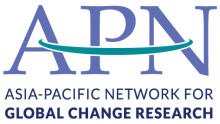
10 Mar 2024
This Forum will take place on 10 March 2024 in Kobe, Japan. It will be held in a hybrid format (on-site and virtual).

09 Nov 2023 to 10 Nov 2023
Seeking to build experience in collaborative regional research and scientific capacity development in the Asia-Pacific region? Interested in writing grant proposals for global environmental change projects? Come and join our open capacity building seminars to receive grant proposal writing guidance and an introduction to the Asia-Pacific Network for Global Change Research (APN)'s 2023 Call for Proposals. Two seminars are available on the 9th and 10th of November, and we warmly welcome participation from early career professionals and global change practitioners in the Asia-Pacific region.
19 Dec 2023 to 21 Dec 2023
Embrace Innovation and Illuminate the Future with MTE 2023
Sustainable Energy and Green Technology International Innovation
Awards

24 Aug 2023
Using Data for Sustainability: An evening of Short Talks and Networking
17 Oct 2022 to 21 Oct 2022
The event is the first in the region focused on recognizing innovations, initiatives, programmes and ideas which contribute to sustainability, eradicating poverty, improving well-being, protecting our planet, and building peace and prosperity.
13 Feb 2022
A joint forum by APN, ADRC, JICA Kansai, and Graduate School of Disaster Resilience and Governance, University of Hyogo
07 Dec 2022 to 08 Dec 2022
Natural Disasters Expo Asia is transforming the Singapore Expo on the 7th & 8th of December 2022 into the ultimate event for the management and mitigation of disasters and will welcome experts around the globe to source the latest revolutionary solutions to calamity management and mitigation.
25 Oct 2021 to 27 Oct 2021
12 Oct 2021 to 14 Oct 2021
The Global Change Impact Studies Centre, in collaboration with regional partners, is organizing a training workshop entitled “Monsoon variability and extremes in changing climate” from 12-14 October 2021.
09 Sep 2021 to 10 Sep 2021
Earth-Life Science Institute (ELSI) will launch a new Master-PhD course on origin-of-life science and astrobiology at Tokyo Institute of Technology. The five-year ELSI course is open for domestic and international students who wish to tackle fundamental questions in natural science such as the origin and evolution of living planets. ELSI will provide financial support (as salary of a research assistant) for all the students, except for ones who are going to be supported by JSPS DC fellowships (Japan) or equivalent fellowships.

01 Jun 2021 to 30 Jun 2021
The Ocean Celebration event runs 1-30 June 2021 and is organized by the Borneo Marine Research Institute of Universiti Malaysia Sabah.
25 Oct 2021 to 29 Oct 2021
First in the region focused on recognizing innovations, initiatives, programmes and ideas which contribute to sustainability, eradicating poverty, improving well-being, protecting our planet, and building peace and prosperity.

12 Mar 2021 to 19 Mar 2021
The APRU-IRIDeS Multi-hazards Program is hosting a two-part webinar series, looking back at the 2011 Great East Japan Earthquake and Tsunami. The panels will draw on lessons learnt and explore disaster mitigation strategies for the future. Open to all, registration required.
10 Mar 2021
Upcoming side event at the 7th Asia-Pacific Climate Change Adaptation Forum: Partnerships to harmonize science information and knowledge at regional scales for enabling adaptation

26 Mar 2021
Springer Nature and the University of Tokyo to hold SDGs Symposium 2021, “Interdisciplinary science solutions for food, water, climate and ecosystems Sustainable Development Goals”
Researchers
Afroz Shah is a Senior Assistant Professor of Structural Geology at the Department of Geosciences, Universiti of Brunei Darussalam (UBD). He is the Programme Leader of Geosciences. Shah completed PhD at James Cook University, Australia, in 2010, a post-doctorate at Earth Observatory of Singapore in 2013 and joined his first academic job as a Senior Lecture of Structural Geology at Curtin Sarawak, Miri, Malaysia, before joining UBD.
Dr. Eisuke Hasegawa is an Associate Professor at the Graduate School of Agriculture, Hokkaido University, where he heads the Animal Ecology Laboratory. His research interests include animal ecology; evolutionary biology; natural selection; sociality; and ethology.
Dr. Zheng Chen is an environmental chemist and associate professor at Xi'an Jiaotong-Liverpool University. His research interests include nutrient recycling from agricultural waste, soil contamination and remediation.
Dr. An is an associate professor at the School of Energy and Environment, City University of Hong Kong (CityU), where she also heads the Water and Membrane Technologies Laboratory.
A researcher/program director at ALARM - for land & environmental justice and climate & environmental integration in development planning of Myanmar & a graduate of YAU (Myanmar), AIT (Thailand) & ANU (Australia).
Dr. Brian Man Yu Bon is currently serving as an Assistant Professor in Department of Science and Environmental Studies, The Education University of Hong Kong.
An energetic and talented researcher with a strong desire to build a career within the research industry. Passionate, self-motivated individual with a drive to succeed, with excellent organizational skills. Highly efficient and methodical with a good eye for detail with a proactive approach to performance and data accuracy.
Morshed Hossan Molla, Ph.D. Research Fellow in the Department of Geography and Environmental Studies, University of Chittagong and working at YPSA (Young Power in Social Action) as a Research, Monitoring & Evaluation Officer, Chittagong, Bangladesh. He received B.Sc. (Honours) and MS (thesis) Degrees in the Department of Geography and Environmental Studies, University of Chittagong in 2009 and 2011 respectively. He received also M.Phil degree from the same department in the field of Water Resource Management. He has attended a number of national and international conferences and published more than thirty research articles in national and international journals and books, mainly on urban service delivery (supply water), urban environment & environmental health, climate change & disaster management, and water resources management. He has a desire to contribute to different aspects of the planning process for underprivileged groups.
Dr. Irina's research focuses on sustainability, including an analysis of environmental management, the urban environment, climate change adaptation and mitigation, and education for sustainable development, or ESD, and its application in real-world contexts.
Dr. Lewis's research interests focus on sustainable tourism with particular emphasis on nature-based tourism in protected areas, environmental education, and environmental conservation.
Prof. Paulina's areas of specialization include air pollution, urban climate, GIS modeling and environmental health. Her research interests focus on examining the effects of air pollution and urban heat islands on health-related problems in densely populated cities.
Assistant Professor of Environmental Science
Krishna Institute of Allied Sciences
Krishna Institute of Medical Sciences
Deemed To Be University, Karad
Mayuko Nakagawa is a biochemist at Earth-Life Science Institute (ELSI) based at the Tokyo Institute of Technology, Japan.
Hitoshi Gomi is an Earth scientist at Earth-Life Science Institute (ELSI) based at the Tokyo Institute of Technology, Japan.
Tomohiro Mochizuki is a specially-appointed assistant professor at Earth-Life Science Institute (ELSI) - Tokyo Institute of Technology.
Takeshi Horinouchi is a professor at the Faculty of Environmental Earth Science, Hokkaido University, Japan.
Daisuke Hirano is an assistant professor at the Ocean and Sea Ice Dynamics Group, the Institute of Low Temperature Science of Hokkaido University, Japan.
Jorge García Molinos is an aquatic ecologist broadly interested in global change ecology and macroecology.
Dr. Hemu Kharel Kafle is the Founder and Director of Research at Kathmandu Institute of Applied Sciences (KIAS), Nepal, and a scientist at the Centre for Water and Atmospheric Research (CENWAR) within it.
I completed B.Sc. (Honours) and M.Sc. in Marine Sciences from University of Chittagong, Bangladesh, M.Phil in Fishereis Technology from University of Calcutta, India and Ph.D. in Environmental Sciences from the Jahangirnagar University, Bangladesh.
I am working as a Program Manager of a Non-Government Organization YPSA (Young Power in Social Action), Bangladesh on Climate Change Adaptation related issues. I have 12 years of Professional experiences of working in a NGO for work on climate change issue, environmental management and human rights issues.
I have a keen interest in climate change, fisheries management, coastal pollutions and environmental assessment. I am author of 70 national and international publication based on climate change, aquatic biodiversity and environmental management issues that are available in Google Scholar and ResearchGate.
Research interest
climate change, fisheries management, aquatic biodiversity, environmental pollution monitoring
Dr. Mashura Shammi is an associate professor at the Department of Environmental Sciences, Jahangirnagar University, Bangladesh.
Dr NK Prasanna is currently working as Sr. Scientist & Editor, Indian Journal of Biochemistry & Biophysics, Research Journals Division at CSIR-National Institute of Science Communication and Policy Research, New Delhi. Before joining CSIR (NIScPR), she was at IIT Guwahati. Dr Prasanna completed her Ph.D from Institute of Medical Sciences, Banaras Hindu University, Varanasi.
In CSIR-NIScPR, She served one important flagship journals viz. Indian journal of Biochemistry and Biophysics (IJBB; ISSN: 0301-1208) It is pertinent to mention that the journal ranks first among all the NIScPR journals as per the available Journal Metrics by international agencies such as Thomson Reuters and Scopus. Details of remarkable academic achievements of IJBB which she spearheading, both nationally and globally. The Indian journal of Biochemistry and Biophysics (IJBB) is a premier SCI-indexed bimonthly peer-reviewed research journal that publishes original research articles in the subject area of biochemistry and biophysics
Co-Founding Member and Managing Director of the Association of Advancing Life And Regenerating Motherland (ALARM), a think tank in Myanmar.
Gouramanis researches geological evidence of modern and past typhoons, tsunami and droughts in coastal and lake environments across Southeast Asia. In particular, he focuses on recent events and compares these to the geological record to understand frequencies, recurrence and intensities to guide the potential impact of future events.
Secretary General and Treasurer of the International Geographical Union (IGU) and Professor of Geography at University of Delhi.
Associate Professor, Disaster Science Division, International Research Institute of Disaster Science (IRIDeS), Tohoku University
Associate Professor at Hong Kong Baptist University researching hydroclimatology, climate extremes and water hazards.
Giants in history
Tetsuya Theodore Fujita (23 October 1920 – 19 November 1998) was a Japanese-American meteorologist who created the Fujita scale that classifies the strength of tornadoes based on damage to structures and vegetation.
Archana Sharma (16 February 1932 - 14 January 2008) conducted research into plant and human genetics that expanded the understanding of both botany and human health. In relation to botany, she uncovered the means by which asexually-reproducing plants evolve into new species.
Palaeontologist Yichun Hao (1920 – 2001) co-authored the first Chinese textbooks on palaeontology and micropalaeontology. Her research on Foraminifera – amoeba-like organisms with shells – was vital for the exploration and utilisation of marine energy resources.
Birbal Sahni (14 November 1891 – 10 April 1949), a pioneer of Indian palaeobotanical research, and founder of what is now the Birbal Sahni Institute of Palaeosciences in Lucknow, made multiple contributions to the study of prehistoric plants. These include the discovery of a new group of fossil gymnosperms (named Pentoxylae), reconstruction of the extinct Williamsonia sewardiana plant, and description of a new type of petrified wood from the Jurassic age.
Lü Junchang (1965–9 October 2018) was a Chinese palaeontologist who is remembered as one of the most important dinosaur researchers of the last 50 years. Lü was an expert on reptiles that lived during the Mesozoic period about 252 million years ago. Cumulatively, Lü and his colleague/competitor Xiaolin Wang described and named more than 50 new species of flying dinosaurs known as pterosaurs.
Chinese palaeontologist, archaeologist and anthropologist Pei Wenzhong (January 19, 1904 – September 18, 1982) is regarded as a founder of Chinese anthropology.
Rinchen Barsbold (born 21 December 1935) is a Mongolian palaeontologist and geologist who was instrumental in discovering and recovering one of the largest dinosaur collections in the world from the Gobi Desert in Mongolia and China.
Meemann Chang (born 17 April 1936) is a Chinese palaeontologist who studied the fossils of ancient fish to understand the evolution of life. By examining fossils, she uncovered new insights on how vertebrates, animals with a backbone, migrated from the sea and became adapted to live on land.
Anna Mani (23 August 1918 – 16 August 2001) was an Indian meteorologist who contributed significantly to the understanding of solar radiation, ozone and wind energy by developing a wide range of measurement tools. One of India’s pioneering female scientists, Mani excelled in the male-dominated area of meteorology and became the Deputy Director-General of the India Meteorological Department.
Võ Quý (1929 – 2017) was a Vietnamese ornithologist who studied the destruction of tropical forests and agricultural lands in Vietnam by Agent Orange, a herbicide used by the U.S. military during the Vietnam War. In addition to planning forest restoration projects, Quý rediscovered the rare eastern sarus crane, an endangered species that had vanished during the war.


